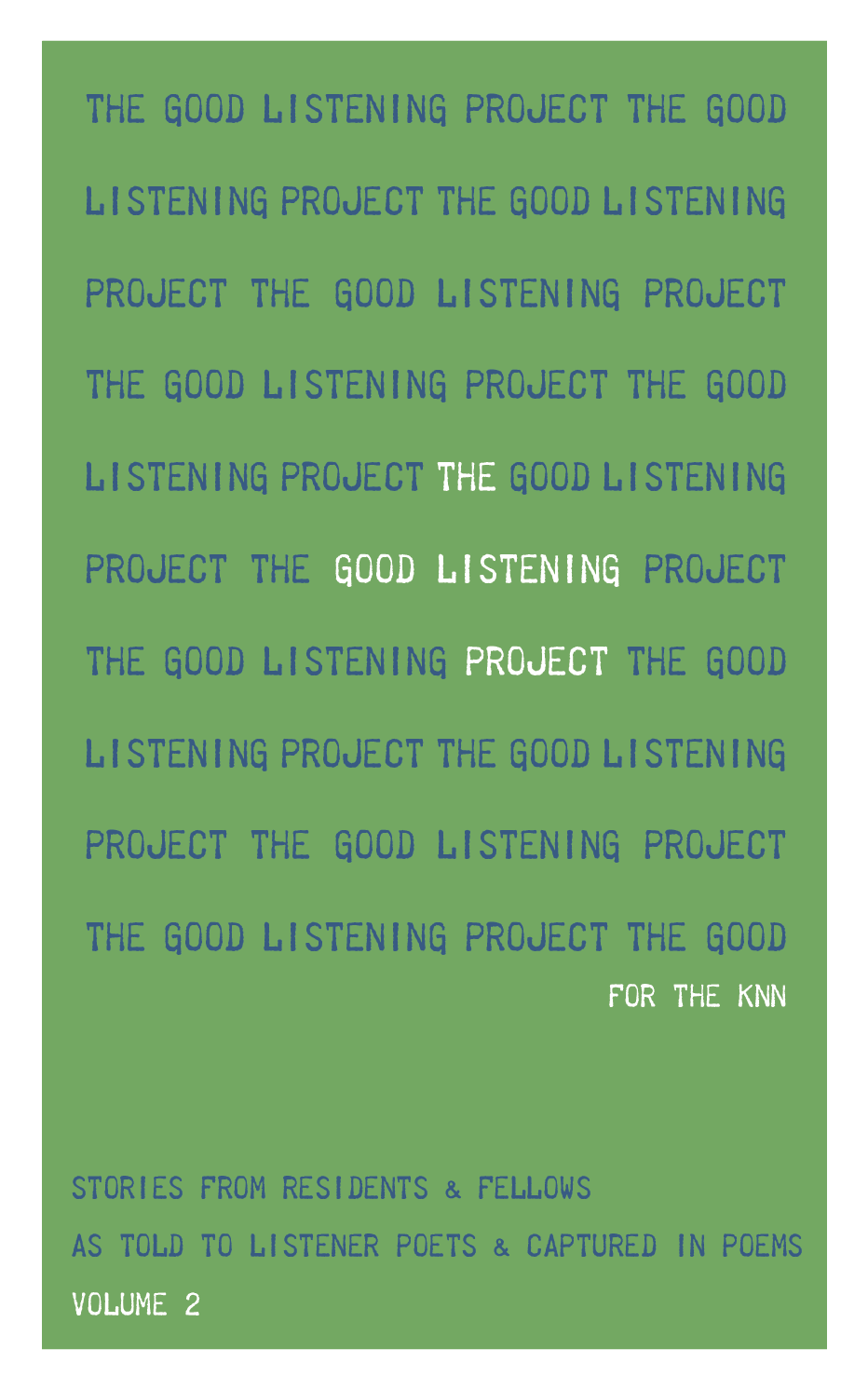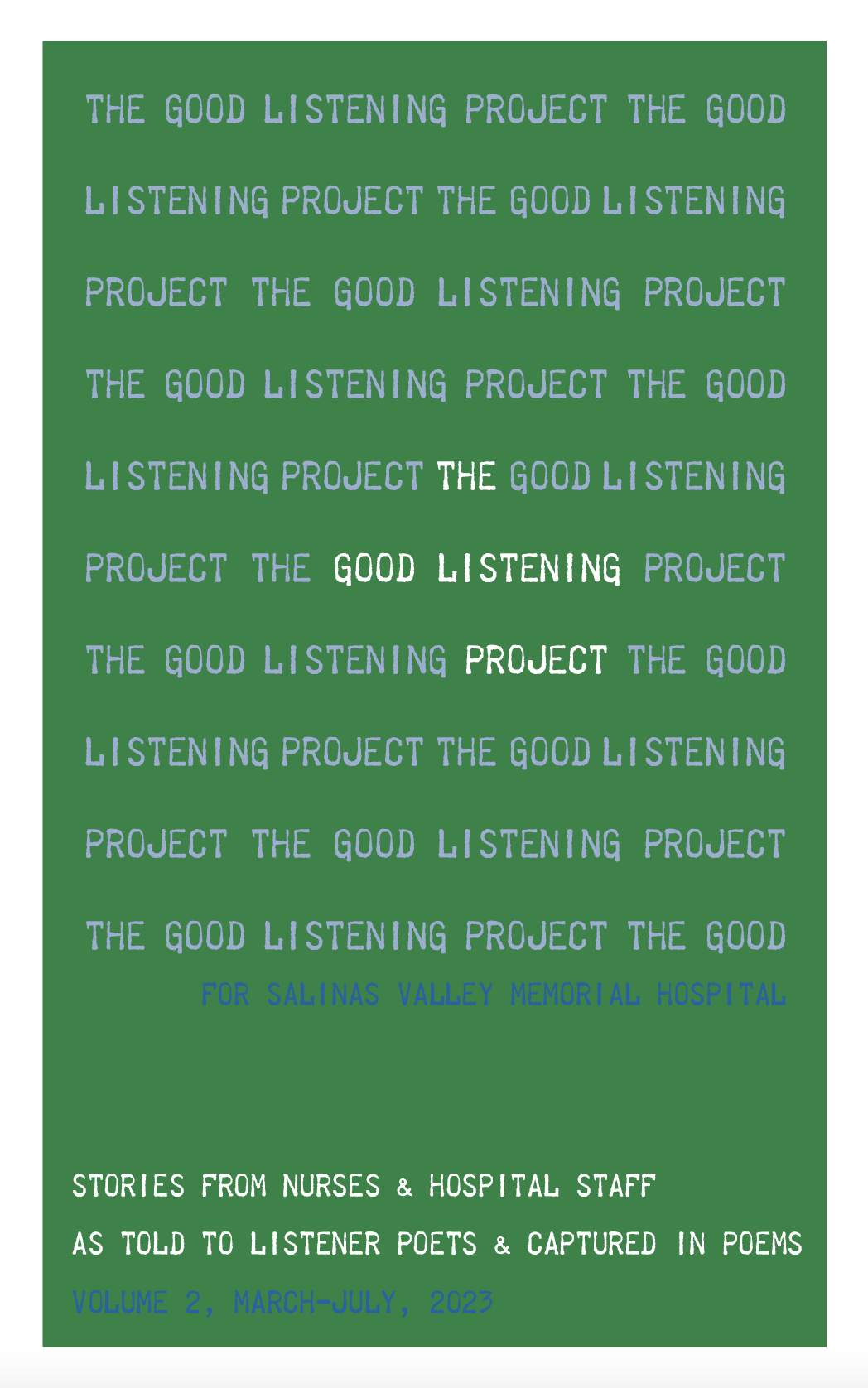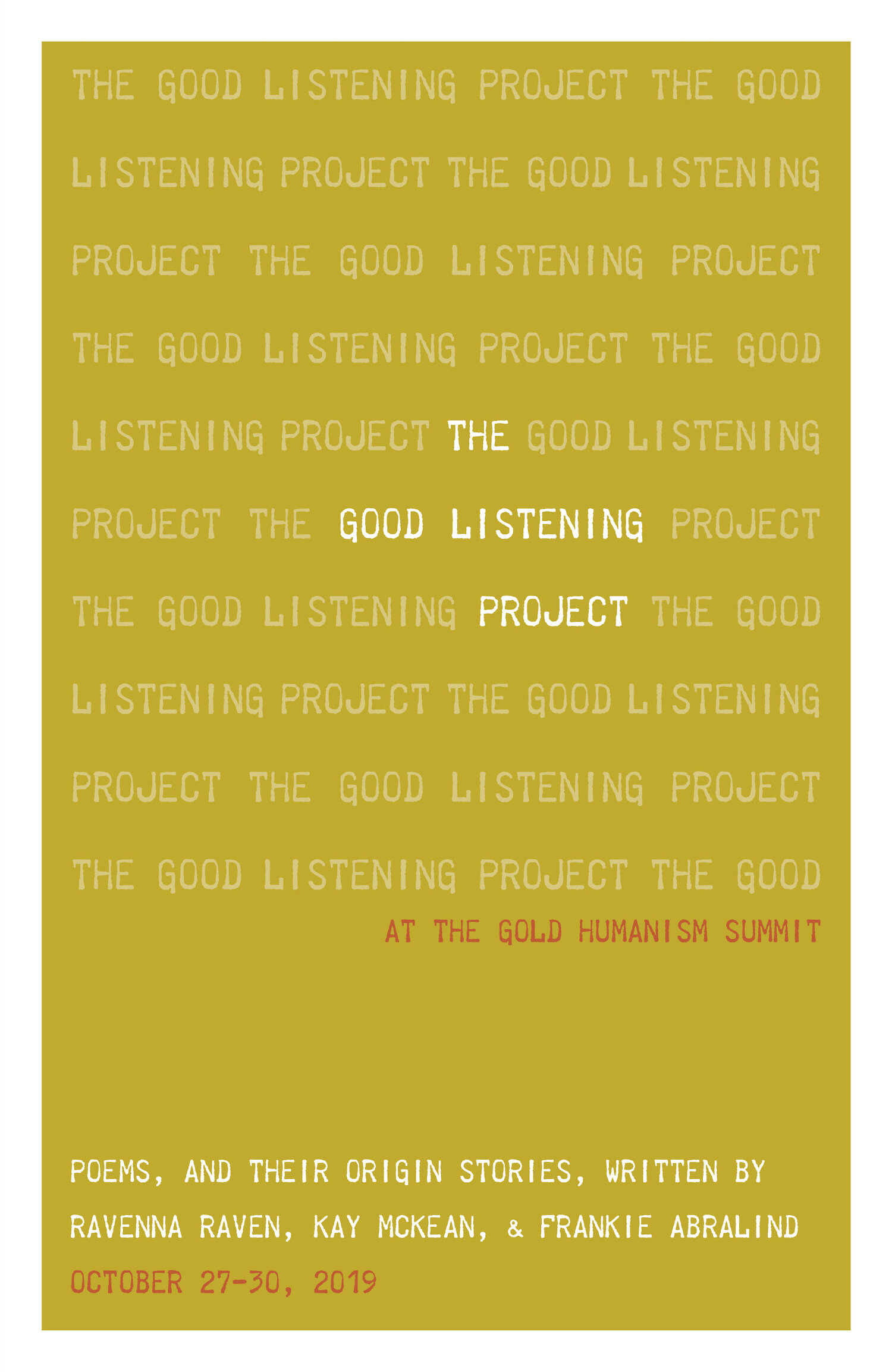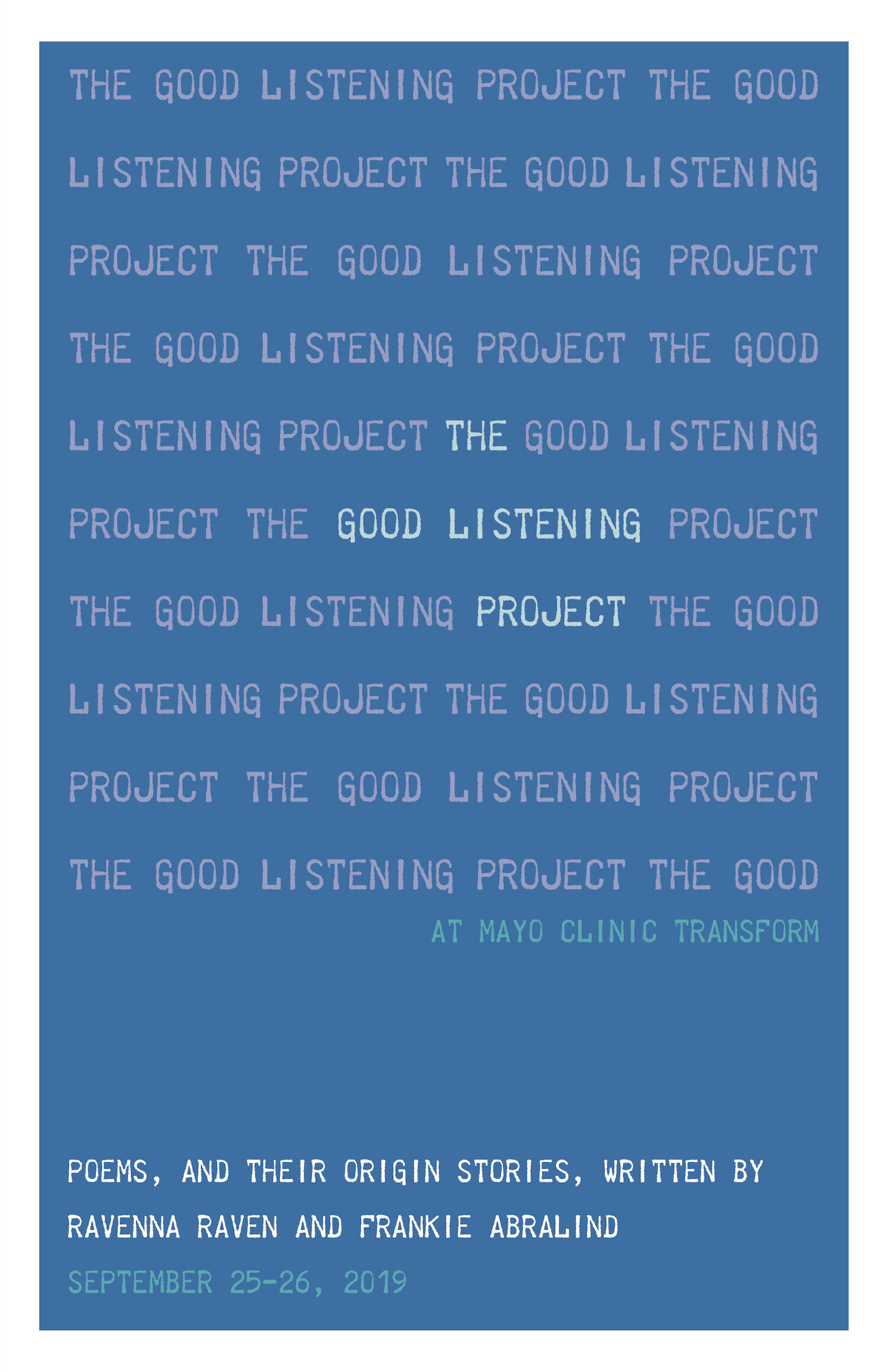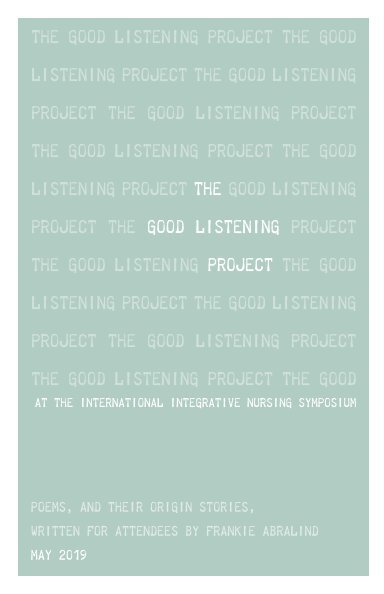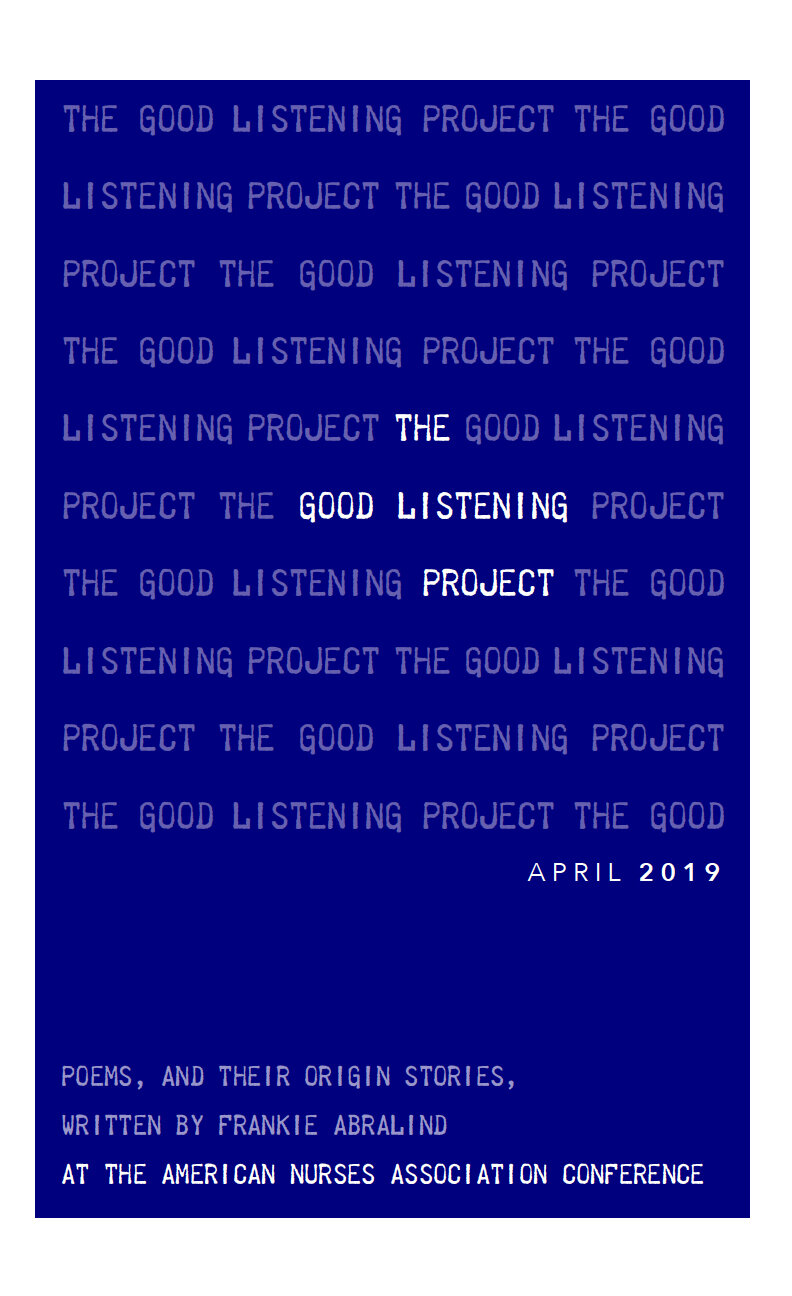Origin Story
Conversation with Kimako Desvignes DNP, RN, Associate Director of Oncology with almost 30 years of experience in medicine, was an emotional journey through a history of social injustice and racial discrimination—a reflection on ancestry at times through shared tears. Henrietta Lacks’ story had a powerful impact on us both.
Dr. Desvignes said, “The historic traumas of African-American women—all African-Americans—lead us to not be the first people at the doctors, nor the first to get surgery. My legacy as a nurse leader is based in integrity, ensuring I provide the best care for everyone. No matter who you are or where you are, I’ll advocate for you, I’ll speak up and fight for you.” She went on: “Henrietta Lacks’ cells have provided opportunities for the world, gene therapy, AIDS, HIV and more, they’re still standing on her shoulders. Her family deserves everything, they should lack nothing.”
Sibihan Lawrence, Listener Poet
Say Her Name: Honoring Henrietta Lacks' Legacy and Impact on Medicine and Research Ethics
Featured at Listening Together: Poems from a Year of Conversations 2025
We Shall Know Her Name
By Sibihan Lawrence, Listener Poet
And We Shall Know Her Name
The Unsung Cornerstone of a Scientific Revolution
Her Sublime Bloodline
The Baseline of
Innovation and Invention
Extracted from unconsenting flesh
Every stolen HeLa cell
An Anchor for Modern Medicine
We Shall Know Her Name
Unassuming Oracle
Responsible
For the development of Universal vaccine
From Polio to Covid-19
In vitro fertilization
AIDS, HIV
And everything in between
And We Shall Know Her Name
It will reverberate in corridors of power
Straining through the closed lips
of the complicit
We Shall Know Her Name
Her proliferating DNA
Like a rapturous river flows
Immortalized in a nation’s veins
Memorialized in our bones
In Resistance, Recognition and Reclamation
We Shall Know Her Name
Henrietta Lacks
We Shall Know Her Name
Skewed Systems failed you
Policies, Practice, Legislation
Callous Companies
And Cunning Corporations
But what is understood
Doesn’t need to be explained
So instead
We self-diagnose
And we self-help
And we become the Physicians
And we heal ourselves
And we hold our breath and pray
as we walk into Doctors’ rooms
We opt out of surgeries and hospital visits
We Beware those men in white coats
Those who practice malpractice
Those who Bear witness
To sick trysts
On sick bodies
Without fear of reprimand or reprisal
Those who weaponize patronage
And toy with our survival
Beware those that tease you with
their expertise
And then kill you with
(un)kindness
Those that attempt to colonize cell culture
Picking over sacrificial Black skins
Gathering around sterile tables
Like hungry vultures
We Shall Know Her Name
Henrietta Lacks
We Shall Know Her Name
Black Woman
She marched through the Battlefields
Desperate for your aid
Tip-toeing around segregation
Dancing with discrimination
Desperate for more time
Desperate for your grace
Yet she became your experiment --
Food for the thoughtless
Your unaware Guinea Pig
Stranger in her house
Scraping at her tissues
Prodding at cell walls
Subjecting her sinew
Manipulating her Melanin
Objectifying her Womb
Then marketing her Membranes
And touting them to the highest bidder
This is all too familiar...
So we swallow our feelings
We push them down
And we fold our tongues
Because even though we scream on those hospital tables
No one comes
And our thick-skinned Black pain
Is like a silent movie
And our tears dry slowly
And the Trauma is unholy...
They say that time heals all wounds
But they never talk about the scars
-- the suddenness of severed kin
Five motherless children
But yet we know why The Caged Bird still sings
It is said that
Those who exalt themselves
Will be humbled
And those who humble themselves
Will be exalted
So Justice must prevail
And We Shall Know Your Name
And know your Legacy
Black Woman
Descendant of
Ancient Code-crackers
And Skillful Code-switchers
Resilient Water waders
And Ingenious Miracle Workers
Henrietta Lacks
You
Single-handedly reshaped Science
And changed
The course of history
Your Celestial silhouette looms
In Resistance, Recognition and Reclamation
We Shall
Henrietta Lacks
Yes! We Shall!
This poemee wanted to leave a legacy of doing good in this world. Although at times she becomes discouraged about the inequalities in the world, she is determined to do her part by making sure everyone has access to quality healthcare.
This person radiated gratitude and hope. She shared that she discovered she was expecting a son just before receiving a lung cancer diagnosis at the age of 31. Despite the challenges, she expressed profound gratitude for living in a human body and reflected on her transformative journey of self-discovery.
She had an epiphany as a child — that love could heal the world. Now, as a seasoned physician, there’s still a part of her that believes in the power of love, but not with the same idealism she once held.
This person is a neurologist of Romanian descent, in practice in the U.S. for 19 years, who draws inspiration from writers in his heritage. In his writing and work, he seeks to create a safe harbor for humanness while navigating the labyrinths of medicine to reach the essence of the humanity of his patients – even if all they want is a diagnosis or cure.
This poemee wanted to share her experience as a surgical resident, offering insight into the traditions that define this unique culture: the relentless pressure to succeed, the deference to those in higher positions, and the often-cold interactions that accompany a field-wide drive for speed and efficiency.
This new physician was looking forward to starting her OB/GYN residency. Her original goal in undergraduate school was physician assistant studies. But a series of experiences led her to consider a different path: medical school.
“I was at a birth recently and thought: This is why they are so afraid of us. They can’t control this” She sat on her couch with a mug of coffee. She is a queer, femme, mother of two who has worked in reproductive health for over two decades, first in abortion care and now as a doula for all, including queer and non-binary families, through the pregnancy spectrum. She has personally experienced birth, miscarriage, hysterectomy and surgical menopause.
A teenage cancer survivor, this poemee shared how she learned from the younger children she witnessed undergoing the same treatment she was. “You just see a difference in the way a child approaches it,” she said. “They have the moment, they have the pain, they have the shot, and then they just go back to playing. I always took strength from the way little kids would handle it.”
Conversation with Kimako Desvignes DNP, RN, Associate Director of Oncology with almost 30 years of experience in medicine, was an emotional journey through a history of social injustice and racial discrimination—a reflection on ancestry at times through shared tears. Henrietta Lacks’ story had a powerful impact on us both.
“Sometimes I feel so helpless,” said this resident, reflecting on all of the challenges faced by the young patients and their families whom she served. Over the last several days, she has become increasingly overwhelmed by events in the news and has questioned her ability to make a difference in the world.
“It’s hard to watch the decline and sometimes hard to visit but it weighs on me not to,” she said. Her father had always been an elaborate storyteller and an alive, vibrant man with a big voice.
The Good Listening Project was honored to once again take part in the annual KNN conference in Minneapolis this year. Jenny closed the session by writing this harvest poem that captured the voices and sentiments shared.
After a history of crippling endometriosis, this woman had an arduous, ongoing struggle with her healthcare community for the right to have a hysterectomy. She was finally granted approval at the age of 29. “It had been like pulling teeth, but finally I felt free,” she told me.
Her childhood was infused with Hawaiian-Polynesian music and dance, taught to her father by his mother. Today, her life’s work is to connect the unbelievable discoveries of molecularly focused pre-clinical research directly to the patient experience of treatment.
She is a single mother born to a single mother and had to grow up fast. She is juggling a sticky work situation, her own anxiety and depression, and being away from home and her kids.
Instead of the usual Listener Poet format – listening to one person’s story and responding with a framing narrative and custom poem – I was invited to create a group poem for forty participants at the Arts in Healing luncheon, hosted by the Inova Health Foundation in partnership with the board.
What does it mean for people living with Sickle Cell Disease to be seen, heard, and understood? For this person, it meant finding – and using – her voice to advocate for herself and for others.
“I’ve experienced a lot of big losses,” she said. “I want to be a beacon of hope and light, keeping the flame lit for cancer prevention.”
Professionally, for this person, Henrietta Lacks’ story represents the need to critically examine our research infrastructure. “Private companies benefit from publicly-funded research without a requirement to give back to ensure the viability of future research.”
“The fact of my life is a miracle,” she told me. Living with multiple chronic illnesses, this patient spoke to me of her journey with alopecia. Of how, in witnessing her body transformed by the condition, she continues to move at once through grief and reclamation.
“I can’t see a future outside of our relationship,” she tells me, “but I also can’t see a future outside of residency.”
“I always believe, no matter what the doctor says, that I will be cured,” she says as her sister sits next to her.
“I wonder if these medical professionals, in caring for people who face such insurmountable odds, walk around all the time carrying this weight I’m hauling now.”
He had been trying to cope with the grief ever since and was on a quest for soul-searching and meaning-making.
She spoke about the ways this traumatic event shaped who she is today: a person with an “unshakeable peace” born of deep faith,
She wanted to help people feel comfortable and transform the shame around colon issues. "I want to talk about things that matter, the things people don't want to discuss.































